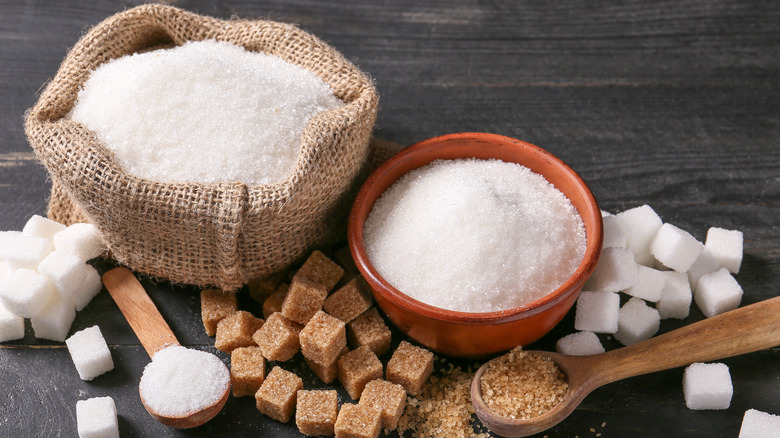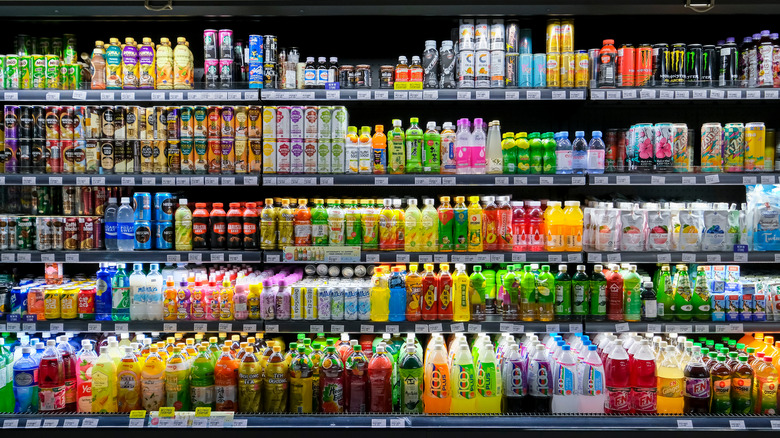New Study Examines The Startling Amount Of Added Sugar In Our Food
If you were to survey your pantry and refrigerator right now, how much soda, candy, and cookies would you find? Many of us can admit to having a sweet tooth now and again, but have you noticed that the foods and drinks we rely on to give us a taste of something sweet have actually gotten sweeter over time? According to new research published last week in the journal Public Health Nutrition, commonly available packaged foods and beverages have lots more sugar and alternative sweeteners added to them today than they did just a couple of decades ago — and, as the researchers from Australia's Deakin University write in their report, this increase in consumption of sweeteners has far-reaching implications for human health.
In their review, researchers examined the quantity of added sugar as well as added "non-nutritive sweeteners," which contain little to no calories and can include chemical sweeteners, such as aspartame, as well as natural ones such as stevia. Their research found, that from 2007 to 2019, the non-nutritive sweetener content of drinks has gone up by a whopping 36% across the globe, while the added sugar content of packaged foods has gone up 9%. And with people taking in so much added sugar and sweeteners, risk factors for obesity, type 2 diabetes, and tooth decay are going up, too.
Efforts to reduce the sugar content of foods and drinks have had unexpected consequences
Globally, people are taking in unprecedented levels of sugar and other sweeteners in the form of packaged foods and drinks. Deakin University researchers report that in Australia, where they're based, citizens consume an average of 14 teaspoons of sugar per day — while the recommended limit for men is nine teaspoons, and six for women. As a result of the well-known health conditions associated with excess dietary sugars, including obesity and type 2 diabetes, the researchers note, world governments have tried to curb foods and drinks' sugar content by imposing an added tax on sugary sodas (via Gov.UK), launching public health campaigns, and adding labels to offending products.
But these efforts have had the effect of leading food and drink manufacturers to replace the added sugar content of their products with non-nutritive sweeteners, as a way to evade the consequences of these measures. The study found that regions with policies aimed at reducing sugar intake had an increase in non-nutritive sweeteners sold in drinks. And, the researchers note, non-nutritive sweeteners are not without their health risks: Their consumption can be linked to type 2 diabetes, heart disease, and disruption of the gut microbiome.
Instead of advertising the drawbacks of sweetened processed foods, the researchers opine governments should instead call attention to the health benefits of whole, naturally sweet foods such as fruits. "Policy should promote nutritious, minimally processed foods," they write in their report.

